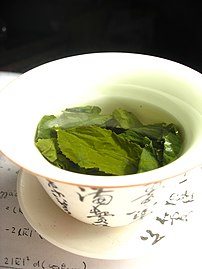[amazon_link asins=’B00T40H4RO,B00TP54IFO’ template=’ProductCarousel’ store=’finmeacur-20′ marketplace=’US’ link_id=’69b4c4e5-0797-11e7-8067-ef81e514fec0′]
[amazon_link asins=’B01DBTFO98,B01LXBJWWG’ template=’ProductCarousel’ store=’finmeacur-20′ marketplace=’US’ link_id=’8463d2d9-0797-11e7-acf3-91257d9c9f2f’]
[amazon_link asins=’B00UY0AUWY,153979086X’ template=’ProductCarousel’ store=’finmeacur-20′ marketplace=’US’ link_id=’517f41ee-0797-11e7-a59c-abbc3d352a8c’]
According to a new study drinking too much soda or fruit juice will increase the risk of developing gout, a painful form of arthritis.
Women who drank two cans or more of non-diet soda a day, or 12 ounces or more of orange juice a day, were more than twice as likely to develop gout. Women who drank just one soda or 6-ounce glass of juice per day were at 74 percent and 41 percent greater risk, respectively.
CNN reports:
“The culprit appears to be fructose … [F]ructose increases levels of the chemical uric acid, which causes gout. When uric acid levels in the body get too high, the acid hardens into sharp crystals that are deposited in joints.”
You may click to see :
Soft Drinks Linked to Pancreatic Cancer Risk
Resources:
CNN November 10, 2010
Journal of the American Medical Association November 10, 2010; [Epub ahead of print]
Related articles
- Sugary Soda, OJ Raise Gout Risk in Women (webmd.com)
- Soda, OJ may increase risk of gout (cnn.com)
- Sugary Drinks Raise Gout Risk (diet-blog.com)
- Sugary Juice and Soda May Raise Women’s Risk of Gout (livescience.com)
- Want Arthritis With Your O.J.? Sugary Drinks Increase Women’s Risk Of Gout, Says Research (blisstree.com)
- Women Who Drink Sugary Beverages Raise Risk of Gout (nlm.nih.gov)
- Gout Risk: More Bad News for Soda (abcnews.go.com)
- Drinking Orange Juice, Sugary Drinks Can Double Gout Risk in Women (aolhealth.com)
- Fructose-rich beverages associated with increased risk of gout in women (eurekalert.org)
- Women Who Drink Sugary Beverages Raise Risk of Gout (health.usnews.com)




![Reblog this post [with Zemanta]](https://i0.wp.com/img.zemanta.com/reblog_e.png?w=580)

